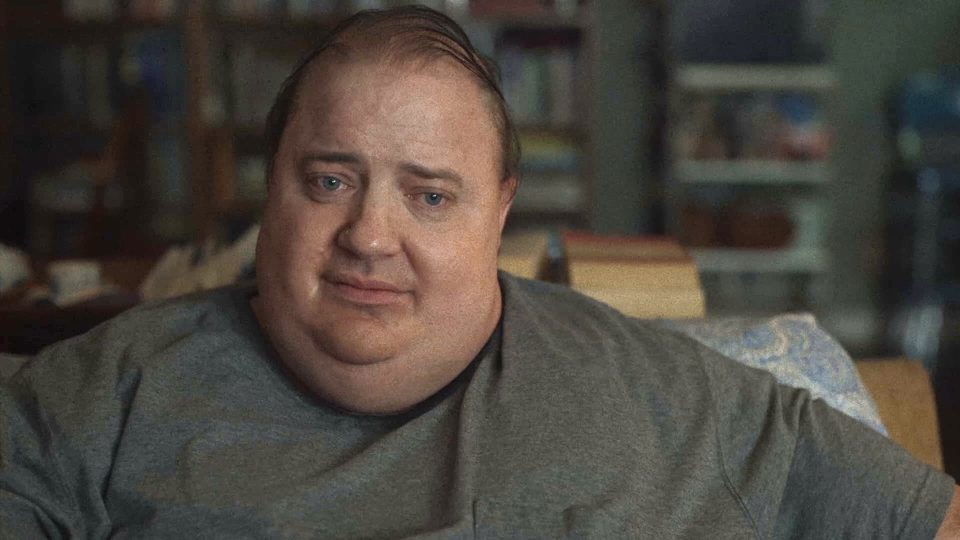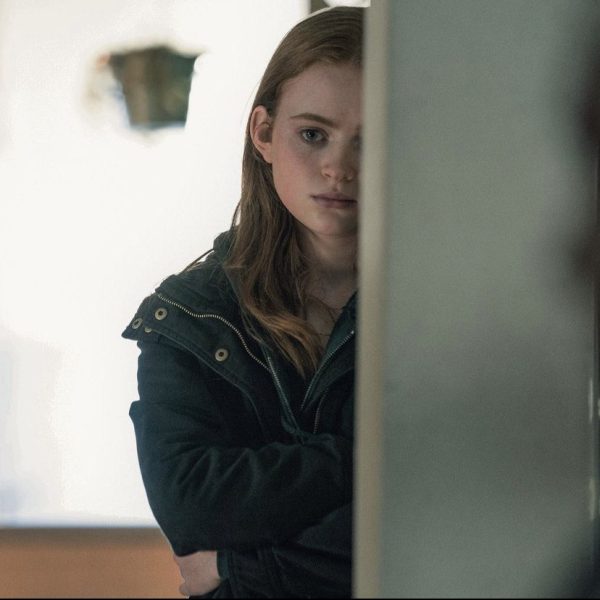
The Whale review: Brendan Fraser’s Oscar-winning role saves muddled tale of an obese man
Darren Aronofsky's psychological drama may have bagged Fraser an Oscar, but it strikes several false notes

The shots are static, the mise-en-scène is limited to one or two locations. Multiple characters enter and exit the frame while the protagonist remains through nearly every scene of the film. It’s not difficult to tell if the film is an adaptation of a play. Visually, it can almost mean the film resembles a 1990s sitcom — minus a laugh track.
In recent psychological dramas, like Regina King’s One Night In Miami (2020) or even in Florian Zeller’s The Father (2020), there’s almost been a marked attempt to retain the film’s “play” quality, never quite justifying the need for their film adaptation. In his latest venture, The Whale (adapted from a 2012 play of the same name), director Darren Aronofsky does something similar.
Considering the film’s protagonist is Charlie (Brendan Fraser in an Oscar-winning performance), a morbidly obese man who can’t leave his apartment, its intention of staying with Charlie’s POV is noble. However, Aronofsky’s script isn’t able to justify the need for why the film remains stuck in his apartment, as characters abruptly appear and then leave in a huff.
We don’t get a sense of Charlie’s daily routine, even as he spends his days binge-eating, teaching an online course on English literature, watching TV, getting his pizza delivered, being brought food by his good friend/nurse Liz (Hong Chau) as she slowly witnesses him eating away his shame.
Heavy-handed commentary
As someone familiar with Aronofsky’s earlier films, one might be able to see what fascinates him about Samuel D Hunter’s 2012 play. Aronofsky’s protagonists have always been obsessive, high-functioning individuals battling addiction of some kind. Also, Aronofsky’s enthusiasm with the Bible — something that’s been a recurring theme since the director made The Fountain (2006) — shows up here too.
Also read: ‘Everything Everywhere All At Once’ review: A migrant story with a human soul
There’s a character called Thomas (Ty Simpkins), who shows up in the first scene to help Charlie find ‘the word of God’. Thomas is convinced that only God can save Charlie from certain death. Even Aronofsky’s last film, mother! (2018) saw him grappling with themes of religion — given the film was set in a Biblical Eden, slowly ravaged by people.

However, as was visible even in his last film, Aronofsky’s commentary has become increasingly heavy-handed. It’s apparent that the director wants to depict the horrors of late-capitalism, which has allowed people to become less social. It’s apparent in how he frames Charlie devouring a piece of fried chicken as grease trickles down his chin or how he chokes himself to death while inhaling a burrito.
We often hear the TV news mentioning things like expensive healthcare, something even Charlie himself tells Liz. “I don’t have insurance, I’ll never be able to repay” — he tells her, when she asks him to see a doctor. Also, there’s an entire track on Charlie’s aversion to religion, whom he blames for the death of his deceased boyfriend, Alan.
The tragedy of lost potential
The saddest thing about The Whale is there’s incredible potential here. Even without its source material, Aronofsky’s is a perfect post-covid film. It shows how people are more reclusive than ever before, choosing to seek refuge in junk food, trashy shows, and periodic dopamine-hits through social media. It doesn’t delve into the social media aspect too much, except for when Charlie tries to reconnect with his estranged daughter Ellie (Sadie Sink) — an annoyingly one-note “angsty teenager”.
While it’s understandable why she would be angry at the father who abandoned her, it seems to hit all the expected notes of a volatile father-daughter relationship. She tells him how much she hates him, he tells her she’s beautiful. She stomps out in anger, he tells her she’s a generous soul and a fundamentally ‘good’ person. There’s nothing novel or unexpected about their interactions — which should have ideally been the heart of the film.
There’s also Brendan Fraser’s sincere swing for the fences, in the way he wears his prosthetic make-up, instead of the other way round. As someone who has been going through a bit of showbiz wilderness for the past decade, Fraser’s is the ultimate performance to root for.
Also read: All Quiet on the Western Front review: A meditation on meaninglessness of war
And his generous spirit shines through, making the audience root for Charlie, making us feel bad for his strained movements around the house, or when he constantly apologises to people around him — giving us a hint at his low self-esteem, and how much of a burden he thinks of himself as.
A silver lining
It’s exactly the kind of ‘showy’ performance and the narrative around the ‘comeback’ of an actor that members of the Academy like to get behind, while patting their own backs. It’s true that Fraser’s performance is one of the silver linings of this garbled film, it’s also true that Aronofsky milks every last bit of sympathy for his lead actor. The film’s fixation with Charlie’s quivering legs as he tries to get up from a sofa and makes his way to the loo makes it cloying beyond belief.
In its 112-minute runtime, the film finally picks up in the last 25 mins, when Mary (an excellent Samantha Morton), Charlie’s ex-wife and Ellie’s mother, enters the film. She’s trying to reconcile with an estranged partner after eight years, and is torn between hating him and feeling bad for him.
Morton, who gave a similar compelling one-scene performance in Maria Schrader’s She Said (2022), is in excellent form here — as she goes through the beats of anger, love, care and civility in the span of a few minutes.
Also read: Oscars 2023 and art of empathy: How trauma films foster understanding, connection
In a film, where the protagonist keeps harping about writing ‘honest’ prose, it’s strange to spot so many false notes. Director Aronofsky could have made a leaner film about the guilt that Charlie feels after the passing of his partner, and for having abandoned his family. He could have done so by trying to say much less, but landing the film on its feet.
Alas, he seems to be in a disruptive mood — not satisfied with making a ‘decent’ film, Aronofsky ends up projecting his inner rumblings about faith, religion, the state of society and probably his own guilt as an absent parent.
The end result is a film that says too much and, at the same time, says very little. It’s a shame because The Whale could have been a much better film than this. It might not be incorrect to conclude that the once-prodigious talents of Darren Aronofsky are slowly finding themselves at the bottom of the ocean. His admirers can only wail.


